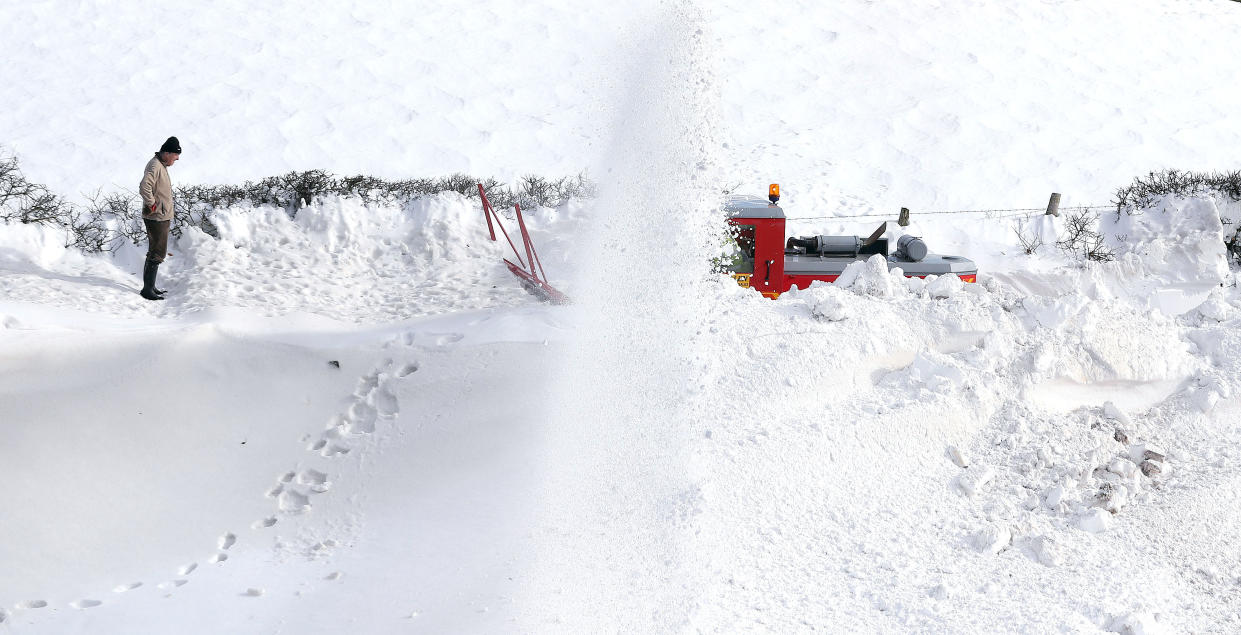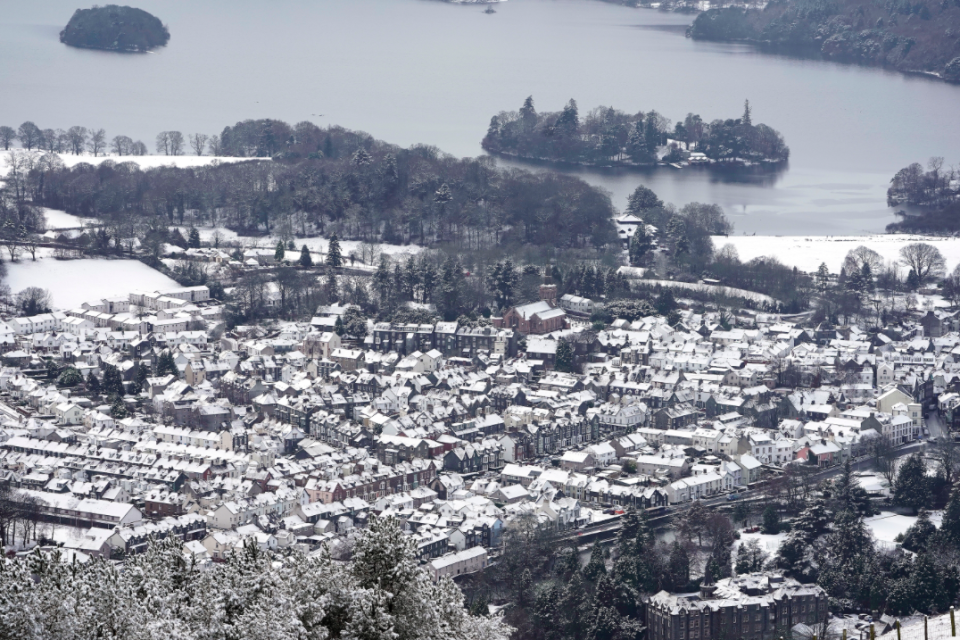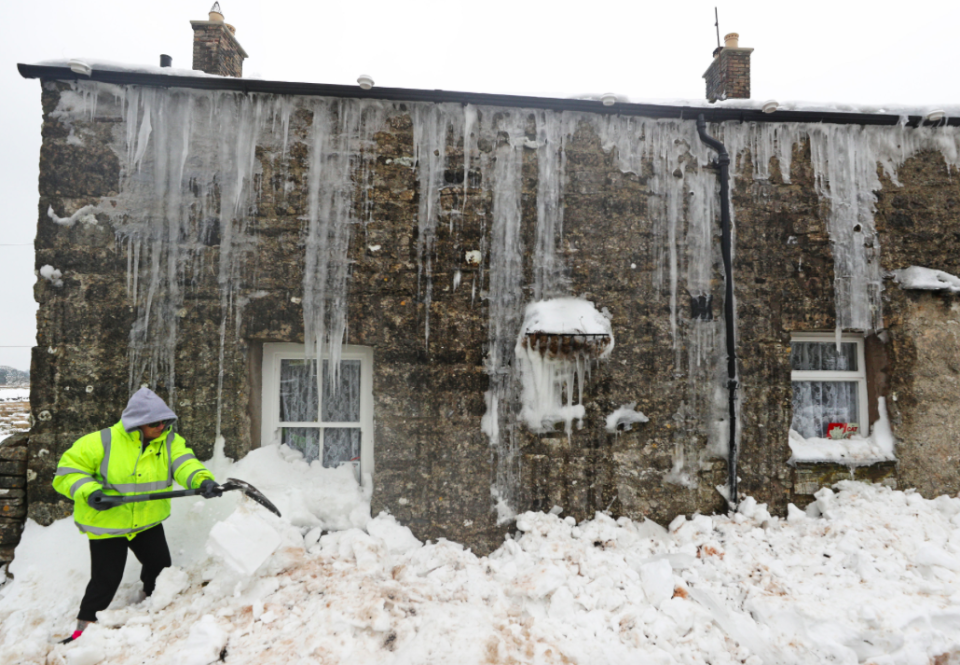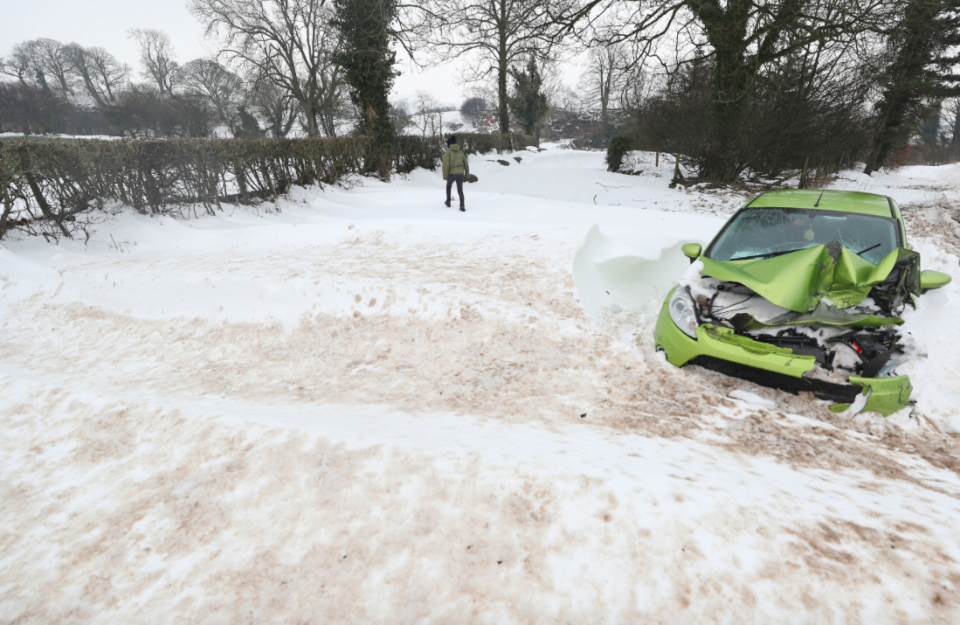Brits still 'isolated' by snow in Cumbria forced to burn their furniture to stay warm

People still cut off by snow have been forced to burn their furniture in order to keep warm.
Laura Seaton, 38, is just one resident from the Cumbrian village of Nenthead, near Alston, who has taken desperate measures following the severe weather.
She said snowdrifts had been so severe in some cases that people had been forced to burn their furniture in order to stay warm.
Mrs Seaton added: ‘We’ve got a hell of a lot of houses that have been completely and utterly cut off, to the point where they had to be dug out just to get out of their front door, because the drifts that have been up there have been quite incredible.
‘There are people who are running out of solid fuel and when that runs out people have been burning their own furniture because the coal merchants down in Alston weren’t able to get to the back end of the village. It has been pretty horrendous up here.’
Mrs Seaton and her husband Jamie, 46, were part of a team of around 40 volunteers who set out to bring supplies to people trapped in nearby areas on Sunday, after the tough conditions threatened to stop them from stocking up on food and water.
Despite only setting up a local Facebook group last Wednesday to deal with the problems in the area, the community now has more than 900 members to help co-ordinate relief efforts alongside members of RAF Odiham’s 27 Squadron.

The military was called in to take emergency supplies to ‘extremely isolated’ parts of Cumbri including Fellside, South Stainmore and Alston had been cut off for five days – and would remain so for another 48 hours – after heavy snowfall and slow progress in clearing the roads.
A Chinook helicopter has been brought in to drop supplies, including food, coal and logs for heating and electrical heating appliances as the operation begun this morning.
Equipment and supplies being loaded onto Chinook at @CarlisleAirport as military begins emergency supply run to cut off #cumbria communities. #uksnow pic.twitter.com/44AYL7BvxE
— CumbriaCountyCouncil (@CumbriaCC) March 5, 2018

Stewart Young, Leader of Cumbria County Council, said: ‘We have some communities who have now been stranded for five days and we have to do all we can to ensure that they are safe and well.
‘Despite our very best efforts and our crews working day and night we are experiencing ongoing significant challenges in accessing some of our communities.
‘The depth of snow and the challenging nature of the terrain is making progress on clearing roads exceptionally slow.
‘BEAST FROM THE EAST’: UK BATTLES SUB-ZERO WEATHER – LATEST FROM YAHOO
Record number of rough sleeper alerts sent to specialist helpline as Britain freezes
Watch: Cat shows off ninja-like skills as it dodges snowballs
Network Rail apologies for closing train lines for snow which didn’t actually materialise
Snow days: Can you be docked pay or sacked for a no-show at work?
‘As a result it is estimated that it will be at least 48 hours before we reach many more of these communities hence the need to bring in military assistance and we are very grateful for their help.’
Wing Commander Gary Lane, RAF Regional Liaison Officer for the North West, added: ‘The Chinook helicopter gives the partnership another dimension to be able to deliver vital supplies by air to areas that are cut off by other means.’
A yellow weather warning for ice issued by the Met Office is in place for areas including Cumbria until 11am on Monday.

They said: ‘Icy stretches will continue to be likely on untreated roads, pavements and cycle paths.
‘In addition, some hill snow is likely at times mainly over the Pennines, although amounts are expected to be small.
‘Driving conditions may become difficult and there is an increased chance of injuries from slips and falls on icy surfaces.’

 Yahoo News
Yahoo News 

